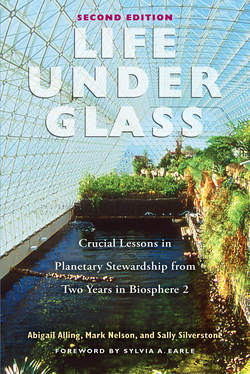Читать книгу Life Under Glass - Марк Нельсон - Страница 21
На сайте Литреса книга снята с продажи.
A NEW ERA
ОглавлениеGeologists are now actively debating whether we are entering a new era due to the massive effects that a growing human population, industry and agriculture has had, and continues to have, on the biosphere. The new era would be called the Anthropocene because humans now drive many crucial trends on Earth. A few astute observers of Biosphere 2, like Wired magazine’s Kevin Kelly, saw it as a forerunner of our modern biosphere where machines and human activities are interwoven with the natural world. To be successful in these early Anthropocene years, humanity has an overriding necessity to act thoughtfully and intelligently, becoming stewards of ourselves, and thus the health of our biosphere that sustains us. Biosphere 2 can be regarded as an Anthropocene experiment in its attempt to integrate appropriate technology with nature. Living in Biosphere 2 demanded that we stretch our human intelligence and capacities to consciously cooperate with our biosphere.
Vladimir Vernadsky, the great Russian biogeochemist who created our modern understanding of the biosphere, also thought evolution’s new era would be the creation of a “noosphere” (a sphere of intelligence) in response to the geological power of human industry. He asserted that the noosphere will arise when scientific, technical, and biospheric intelligence harmonize so that technics reinforces life and life reinforces technics in an evolutionarily sustainable way. Our Russian colleagues, the leaders in closed ecological systems research, thought Biosphere 2 should have been named “Noosphere 1.” We can now appreciate Biosphere 2 as an early laboratory experiment which foreshadowed a future when humans start to intelligently operate our “spaceship Earth.” Then, we will start to transform our current downward trajectory into a regenerative, creative and evolving shared biospheric future.
